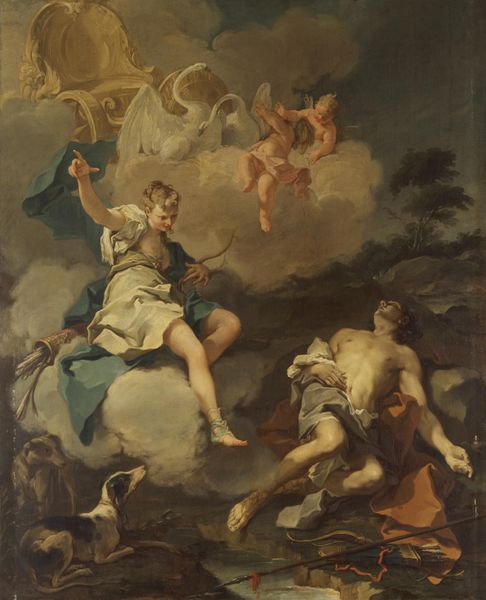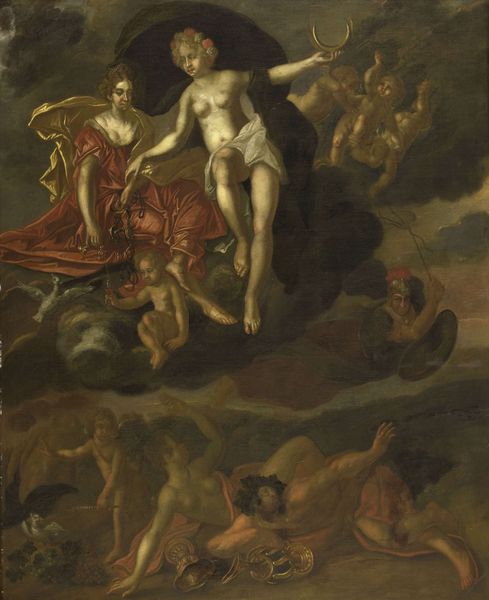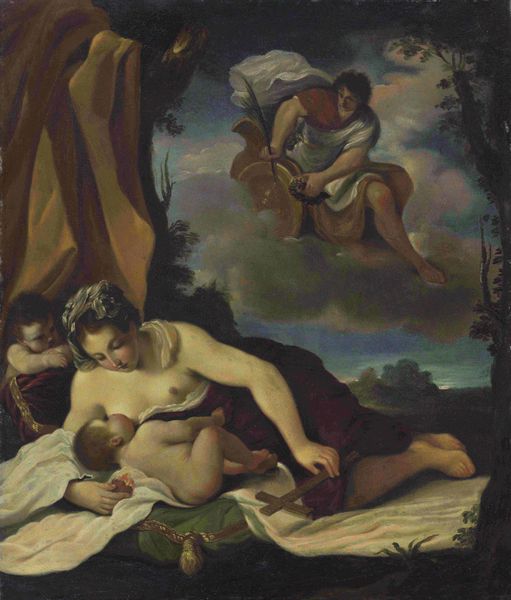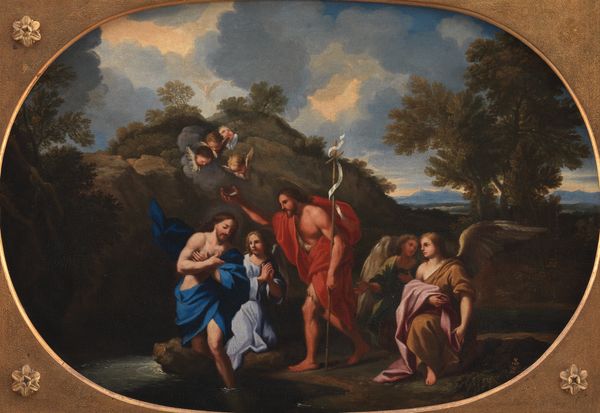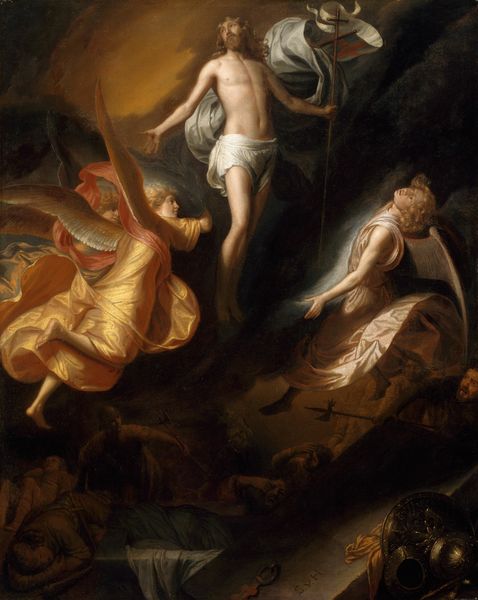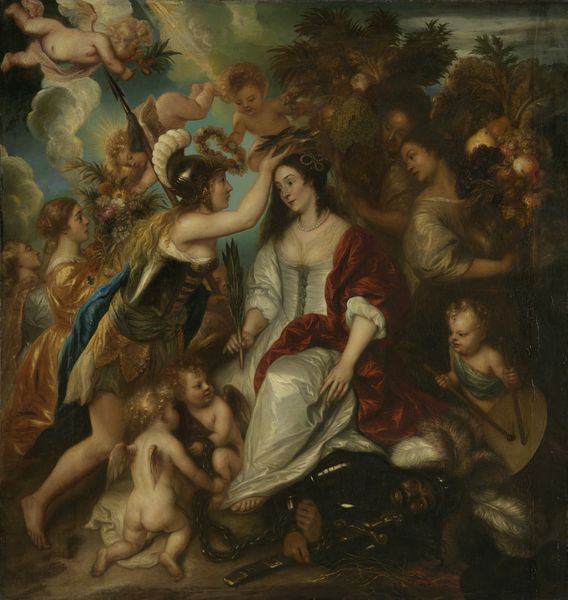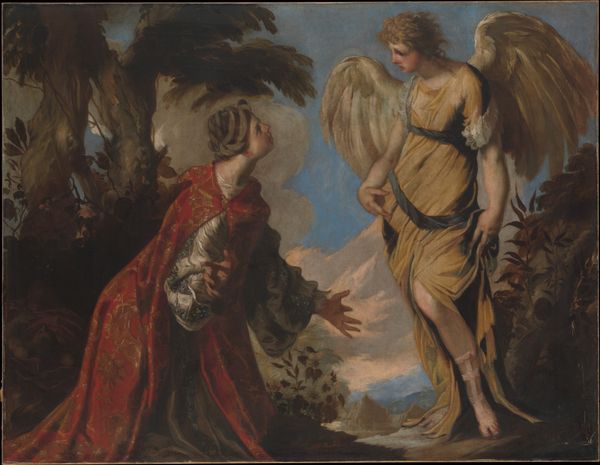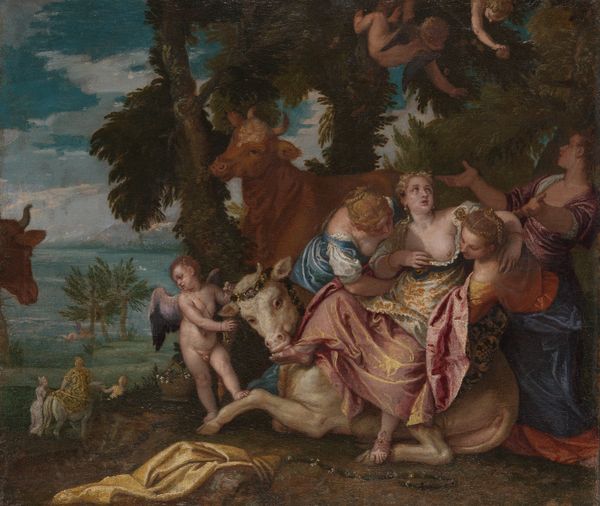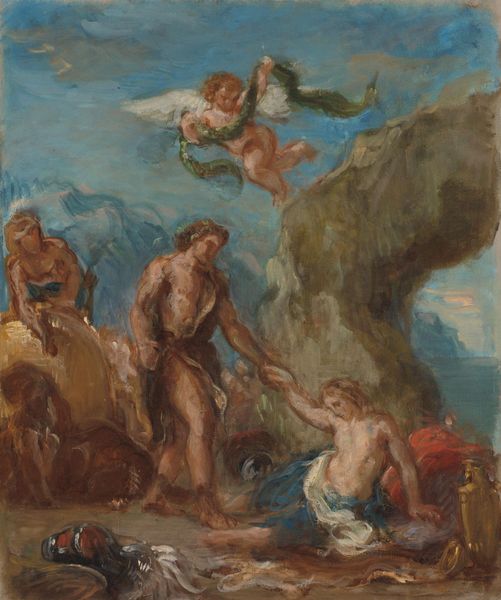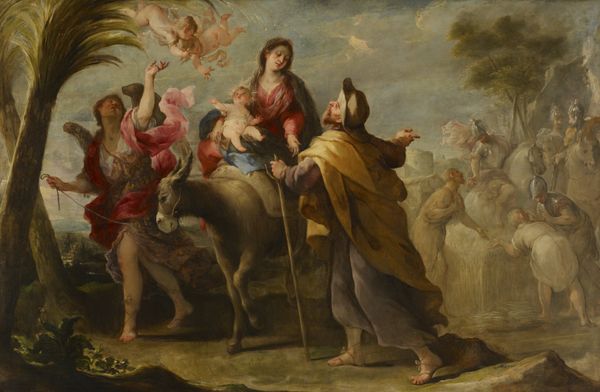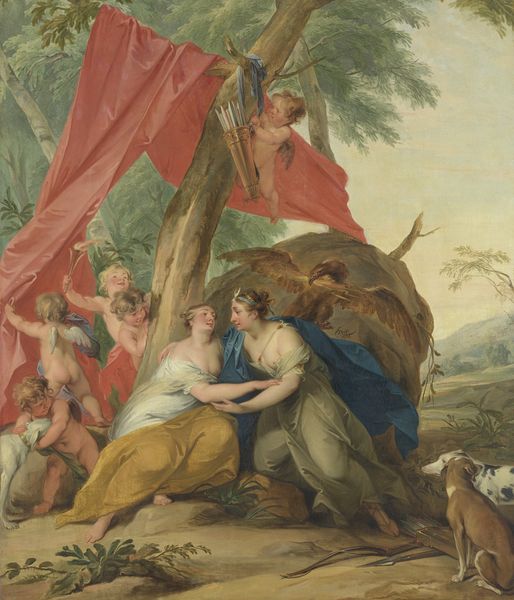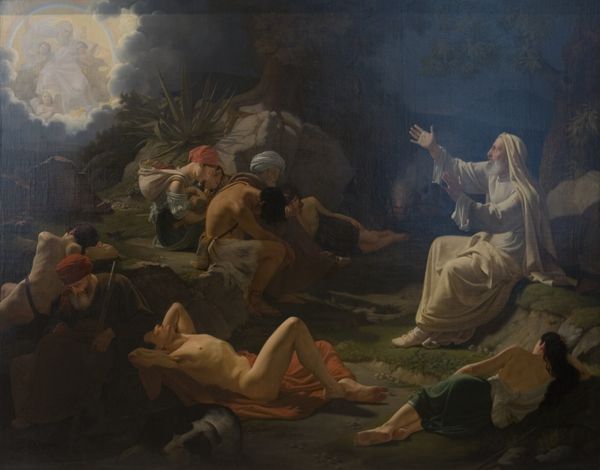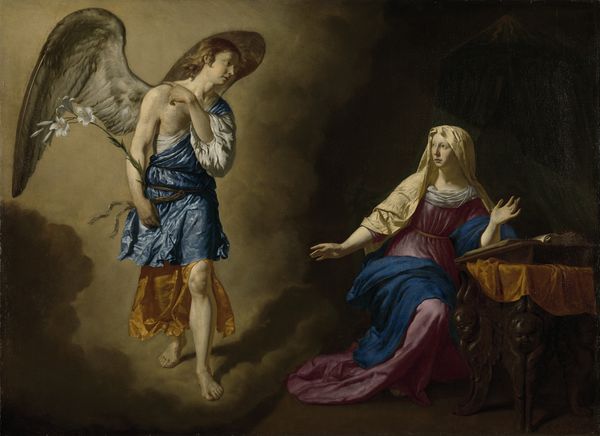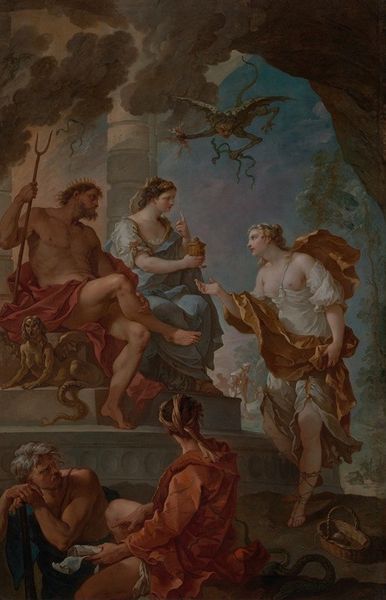
The Judgment of Jupiter 1815
0:00
0:00
samuelmorse
Yale University Art Gallery (Yale University), New Haven, CT, US
painting, oil-paint
#
neoclacissism
#
allegory
#
painting
#
oil-paint
#
greek-and-roman-art
#
figuration
#
oil painting
#
mythology
#
history-painting
Copyright: Public domain
Samuel Morse, better known as the inventor of the telegraph, painted "The Judgment of Jupiter" in the early 19th century. It depicts a scene from classical mythology, reflecting the period's fascination with ancient Greece and Rome. Morse's personal beliefs and social standing as a prominent American intellectual deeply influenced his artistic choices. The painting presents a traditional, patriarchal view of power, with Jupiter, the king of the gods, presiding over mortal affairs. The artwork embodies the cultural values of its time, reinforcing established hierarchies and gender roles. The composition and subject matter speak to the prevailing attitudes towards morality and justice. Consider how Morse uses the narrative of divine judgment to perhaps comment on contemporary social issues, such as political corruption or moral decay. Ultimately, "The Judgment of Jupiter" invites us to reflect on the enduring themes of power, morality, and justice, and to consider how these themes are shaped by the cultural and social contexts in which they are created and interpreted.
Comments
No comments
Be the first to comment and join the conversation on the ultimate creative platform.
